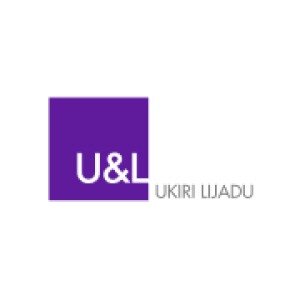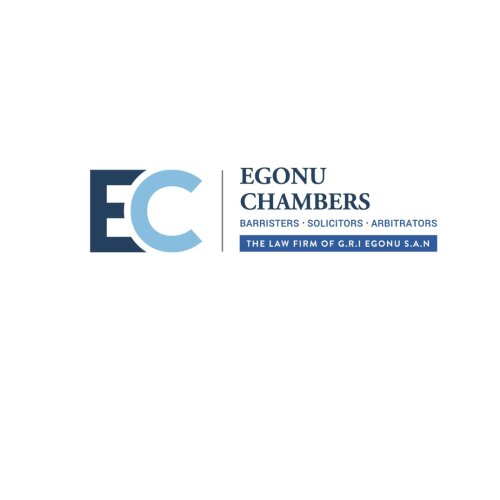Best Business Registration Lawyers in Maitama
Share your needs with us, get contacted by law firms.
Free. Takes 2 min.
List of the best lawyers in Maitama, Nigeria
Nigeria Business Registration Legal Questions answered by Lawyers
Browse our 2 legal questions about Business Registration in Nigeria and read the lawyer answers, or ask your own questions for free.
- Timeline, Requirements, and Costs for Company Registration with the CAC
- How long will it take to get my company registered with the CAC, and what are the necessary requirements and costs?
-
Lawyer answer by GAVEL & GREY LEGAL PRACTITIONERS
The duration takes between 7-28 days. And as for requirement, it varies depending on the type of company you seek to register. the fees is usually determined by the share capital you seek to register your company with. for more...
Read full answer - I want to start upa disatch rider company i. Enugu. Courier a d logistics. Company
- What are the necessary law requirement and licensing to set up a dispatch rider business within Rnugu State
-
Lawyer answer by Highlaw Chambers
To establish a dispatch rider business in Enugu State, several key legal requirements must be met. Firstly, you need to register your business with the Corporate Affairs Commission (CAC) and obtain a Business Name Registration. Additionally, you will need to...
Read full answer
Nigeria Business Registration Legal Articles
Browse our 1 legal article about Business Registration in Nigeria written by expert lawyers.
- An Overview of The Taxation of Non-Resident Companies in Nigeria
- A company in Nigeria, whether resident or non-resident, is subject to taxation if its income falls within the scope of the Companies Incomes Tax Act. It is important to note that Nigerian tax laws do not exempt the income of a branch of a business or company from taxation. While... Read more →
About Business Registration Law in Maitama, Nigeria
Maitama, a bustling district in the Federal Capital Territory of Nigeria, follows the national framework for business registration. Business registration in Nigeria is primarily governed by the Companies and Allied Matters Act (CAMA), administered by the Corporate Affairs Commission (CAC). This legislation ensures that businesses operate legally and conform to the set standards for corporate governance. The process is relatively straightforward but can be influenced by various local requirements within Maitama. Business entities including sole proprietorships, partnerships, and companies must be duly registered to engage in legal commercial activities.
Why You May Need a Lawyer
Engaging a lawyer during the business registration process can be a wise decision for several reasons. Legal professionals can assist with:
- Understanding the complex legal framework and ensuring full compliance with the CAMA and other relevant laws.
- Navigating local requirements and administrative procedures specific to Maitama.
- Drafting and reviewing documents such as Articles of Association and Memoranda.
- Providing guidance in choosing the most suitable business structure based on your needs.
- Resolving disputes or legal challenges that may arise during the registration process.
Local Laws Overview
Business registration in Maitama adheres to both national law governed by CAMA and any specific local regulations that may impact business operations. Key aspects include:
- The necessity of obtaining a business name approval from the CAC.
- Completing forms and paying requisite fees as stipulated by CAC's fee schedule.
- Compliance with zoning laws and obtaining local permits if required.
- Understanding and adhering to tax responsibilities outlined by the Federal Inland Revenue Service (FIRS).
Frequently Asked Questions
What types of business entities can I register in Maitama?
In Maitama, you can register several types of business entities including sole proprietorships, partnerships, private limited companies, public limited companies, and incorporated trustees.
How long does it take to register a business in Maitama?
The registration process can take between one week to one month, depending on the completeness of your documentation and the workload of the registration authorities.
What documents are required for business registration?
Generally, you need a completed registration form, approved business name, identification documents, and payment proof of prescribed fees. Additional documents may be required based on business structure.
Are there any local permits needed after registration?
Yes, businesses may require certain local permits, especially if they involve specific activities like food services or real estate. The requirement can vary based on the business type.
Can a foreigner register a business in Maitama?
Yes, foreigners can register businesses in Maitama, but must comply with specific requirements, including obtaining a business permit and expatriate quota from the Nigerian Investment Promotion Commission (NIPC).
What is the cost associated with business registration?
Registration costs vary depending on the business structure. Fees for registering a sole proprietorship differ from those for a corporation, with costs typically outlined by the Corporate Affairs Commission.
Is business registration mandatory?
Yes, registration is mandatory for all businesses intending to operate formally in Nigeria. This ensures legal recognition and compliance with national laws.
How can I check the status of my business registration?
You can check the status of your application by visiting the Corporate Affairs Commission's online portal or contacting their office directly.
What happens if my business name is already taken?
If your chosen business name is already registered, you will need to select a different name or consider slight modifications to make it unique.
Can I handle the registration myself without a lawyer?
While it is possible to handle registration independently, engaging a lawyer can simplify the process and ensure compliance with all legal requirements, particularly if you are unfamiliar with the regulations.
Additional Resources
For further assistance, the following resources may be helpful:
- Corporate Affairs Commission (CAC) - The primary body for business registration in Nigeria.
- Nigerian Investment Promotion Commission (NIPC) - Provides support and permits for foreign investors.
- Federal Inland Revenue Service (FIRS) - Responsible for tax-related matters.
- Local business advisory centers in Maitama.
Next Steps
If you need legal assistance in business registration, consider the following steps:
- Consult with a legal expert specializing in business law within Maitama.
- Gather all necessary documents as advised by your lawyer.
- Visit or contact the local CAC office for the detailed process and submit your application.
- Review legal agreements and documents for compliance, especially if you are a foreign investor.
- Inquire about local permits or requirements from relevant Maitama authorities based on your business nature.
Lawzana helps you find the best lawyers and law firms in Maitama through a curated and pre-screened list of qualified legal professionals. Our platform offers rankings and detailed profiles of attorneys and law firms, allowing you to compare based on practice areas, including Business Registration, experience, and client feedback.
Each profile includes a description of the firm's areas of practice, client reviews, team members and partners, year of establishment, spoken languages, office locations, contact information, social media presence, and any published articles or resources. Most firms on our platform speak English and are experienced in both local and international legal matters.
Get a quote from top-rated law firms in Maitama, Nigeria — quickly, securely, and without unnecessary hassle.
Disclaimer:
The information provided on this page is for general informational purposes only and does not constitute legal advice. While we strive to ensure the accuracy and relevance of the content, legal information may change over time, and interpretations of the law can vary. You should always consult with a qualified legal professional for advice specific to your situation.
We disclaim all liability for actions taken or not taken based on the content of this page. If you believe any information is incorrect or outdated, please contact us, and we will review and update it where appropriate.









